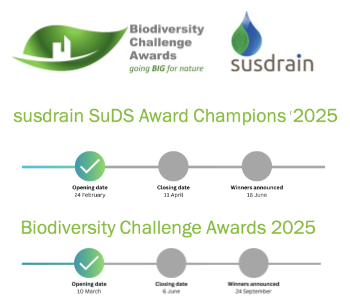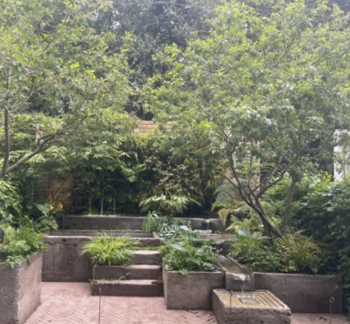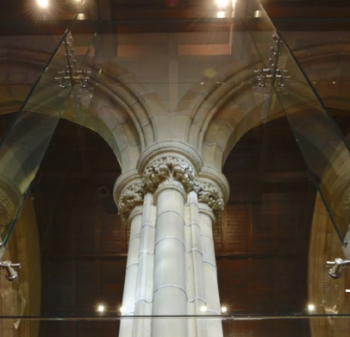Public space intervention
Written by Bradley L. Garrett
(Author of ‘Explore Everything: Place-hacking the City’)
[edit] Public space intervention - Space Probe Alpha
We are losing our cities. The land grab taking place around us is a subtle, soft play, where the dirty work takes place behind a veneer of affable brand management, swanky ‘starchitecture’ and a general sensation that our dear old town, whether it be Bristol, Boston or Bangkok, is stepping up as a ‘global city’. We are expected to be proud.
In London, the first time we went through such dramatic landscape convulsions, in the 19th century, we were left with public infrastructure – sewers, electricity tunnels, transport – that served the populace for 150 years. The next architectural spasm was when we re-housed the population bombed out during the war.
Today, we find ourselves once again hemmed in by construction machinery on all sides, but the new city being built, contra to those times past, is not for us. There are 263 higher-than-20-storey buildings currently planned for London and nobody seems to know who will be able to afford to live in them. Council blocks are being ripped down across the capital and in a number of boroughs rents have doubled since 2008, causing a mass exodus of long-term communities to the furthest branches of the public transport network and beyond. Where communities are ripped asunder, private issues become public issues. But where to air them?
One of the subsidiary effects of the rampant redevelopment of the city is that when the construction dust settles, often we find that open-air public spaces once maintained by civil bodies have been quietly passed into the hands of corporations as part of austerity-driven buyouts. In these ‘new’ spaces, our public rights are severely curtailed by corporate land management policies, policed by aggressive security guards in florescent vests, and monitored by the swiveling eyes of dome cameras tracking our every transgression. Photography is banned. Loitering is banned. Protest is banned. The public realm becomes space fit only for consumption; all other activities are rendered subversive, deviant, out-of-control.
Where the councils still hold the deed, they are often bullied by developers into ramming through draconian legislation such as Public Space Protection Orders meant to ‘tidy-up the city’ in anticipation of regeneration. These orders criminalise busking, street drinking, rough sleeping, dog-walking and, of course, gathering. People gathering in public space are a threat to corporate power – they might talk to each other, ask questions, demand explanations.
Our cities will likely have a financial future as places for tourism and exchange, places where the rich will park their money in speculative real estate and artists will make a fortune churning out even more speculative crappy public art. What is in question here is whether our cities have a cultural future as citizens are increasingly pushed to the margins. Perhaps the only viable option left to such a disempowered populace is direct action. In 1932 over 400 people trespassed onto a moorland plateau called Kinder Scout to contest the closure of public access by landed gentry. Corporate closures today, swathed they might be in seductive sales-speak, are no less violent in their closure of public space and must be fought with similar verve.
It is time for our urban rambler moment; it is time to reclaim our cities.
[edit] Related articles on Designing Buildings
Featured articles and news
Focussing on the practical implementation of electrification.
Sustainable Urban Drainage and Biodiversity
Awards for champions of these interconnected fields now open.
Microcosm of biodiversity in balconies and containers
Minor design adaptations for considerable biodiversity benefit.
CIOB student competitive construction challenge Ireland
Inspiring a new wave of Irish construction professionals.
Challenges of the net zero transition in Scotland
Skills shortage and ageing workforce hampering Scottish transition to net zero.
Private rental sector, living standards and fuel poverty
Report from the NRH in partnership with Impact on Urban Health.
.Cold chain condensing units market update
Tracking the evolution of commercial refrigeration unit markets.
Attending a conservation training course, personal account
The benefits of further learning for professsionals.
Restoring Alexander Pope's grotto
The only surviving part of his villa in Twickenham.
International Women's Day 8 March, 2025
Accelerating Action for For ALL Women and Girls: Rights. Equality. Empowerment.
Lack of construction careers advice threatens housing targets
CIOB warning on Government plans to accelerate housebuilding and development.
Shelter from the storm in Ukraine
Ukraine’s architects paving the path to recovery.
BSRIA market intelligence division key appointment
Lisa Wiltshire to lead rapidly growing Market Intelligence division.
A blueprint for construction’s sustainability efforts
Practical steps to achieve the United Nations Sustainable Development Goals.
Timber in Construction Roadmap
Ambitious plans from the Government to increase the use of timber in construction.
ECA digital series unveils road to net-zero.
Retrofit and Decarbonisation framework N9 launched
Aligned with LHCPG social value strategy and the Gold Standard.
























